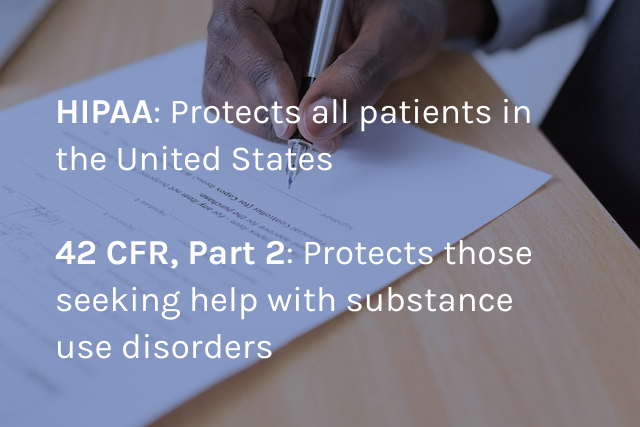We are so grateful that you want to be involved with your loved one’s recovery. Please know, however, that we are legally and ethically required to not disclose any information without written consent from our client.
Ten16’s family communication policies

We are legally required to protect privacy
As a concerned family member, it is understandable that you want to know about how your loved one is doing while they are in treatment with Ten16 Recovery Network. Your healthy support and concern can be an important part of their recovery.
However, confidentiality in the behavioral health arena, especially for substance use disorders, is a legally complex issue.

Please understand that Ten16 is bound by TWO different federal confidentiality laws:
- First, there is HIPAA, which most of us are all familiar with from our own medical care.
- On top of HIPAA, treatment for substance use disorders is also protected by federal privacy regulations called 42 CFR, Part2. These standards are actually stricter than the protections afforded under HIPAA.
Treating information confidentially means not releasing any information to any family or friends, including whether a person has made an appointment or made it to one of our residential facilities, without their signed written consent.
Even if you were the one to drop them off at the facility yourself, the federal law forbids us from to acknowledging whether that person is involved in our program unless we have that signed release of information.
Our staff keenly recognizes how frustrating this can seem. We are not purposefully being secretive or keeping things from you. We are legally and ethically required to maintain these standards of confidentiality.
Clients may sign a release of information
What may be helpful to know is that in most instances, people involved in treatment are more than willing to sign a release of information that would allow the staff to discuss their situation or concerns with their loved one(s).
There may be personal reasons that a person is not willing to sign a release of information. That is their right and their choice.
In these situations, we uphold privacy concerns consistent with professional guidelines and federal privacy laws.
 Contact
Contact FAQs
FAQs


